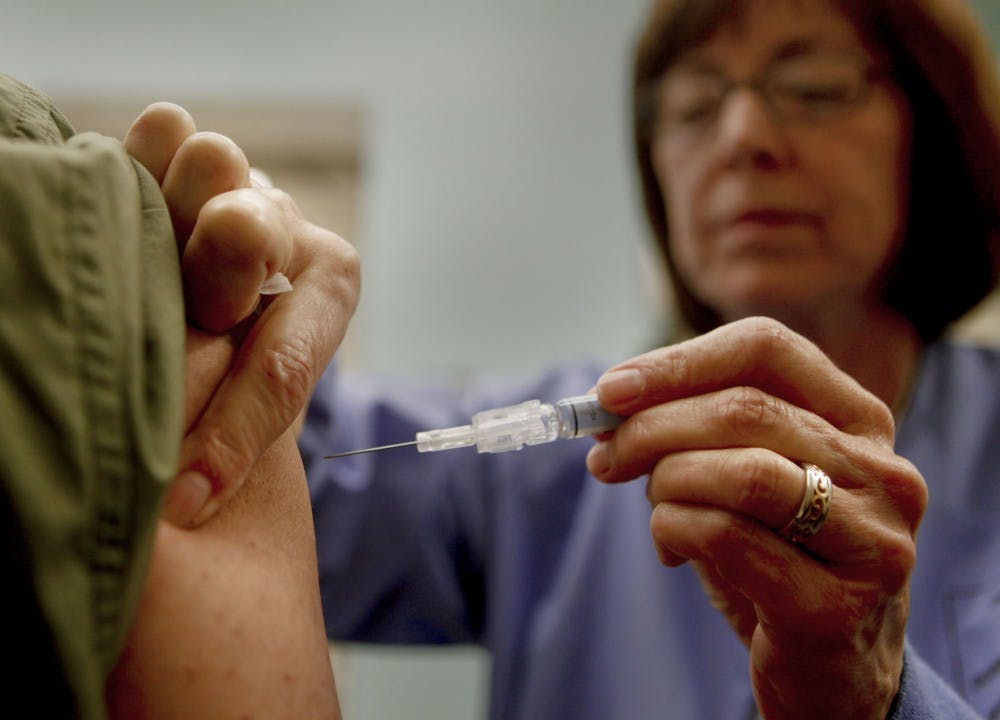While sitting in my pediatrician’s office waiting for my yearly check-up, I can hear the high-pitched screams of some poor, unfortunate toddler who had to receive a shot. I scroll absently through my Facebook feed as I wait impatiently for the customer service woman to print a copy of my immunization records.
An agonizing 30 minutes later, the receptionist finally called my name and said my records are ready. I took my papers and turned to leave when the receptionist called out that I have yet to receive the HPV vaccination.
Her words made me pause. I remembered hearing about that vaccine when I was younger, but I didn’t pay attention to it because my mother had dismissed it at the time.
Human papillomavirus is the most common sexually transmitted infection. In many cases the body is capable of flushing out the virus by itself. However there are cases where, if left untreated, HPV can lead to genital warts, cervical cancer and penile cancer, among others.
The HPV vaccine, or Gardasil, is one of the innocuous and effective methods teenagers and young adults can take advantage of to prevent contracting the HPV infection.
“It’s pretty safe. The side effects would be like possible dizziness … mostly it’s local site reactions or injection site reactions," Dr. Megan Cheney, medical director of Women’s Services at Banner University Medical Center, said.
With so few major side effects and relatively low-risk, I think it's common sense to receive the vaccine. It doesn't make sense to not protect your children, or yourself, if there is an option to do so.
Unfortunately even with this relatively harmless vaccine, few people actually receive it. According to a study conducted by Melissa Gilkey, an assistant professor of population medicine at Harvard Medical School, “only 38 percent of teen girls and 14 percent of teen boys receive all three doses of the vaccine … far below rates typically in the 80 and 90 percents for other vaccines.”
The discrepancy in the amount of people receiving the HPV vaccine comes from multiple sources. Diane Labban, chief of Women’s Health at ASU Health Services, said in a written statement. “There is a misperception that this vaccine would encourage sexual activity in young people; it does not. Evidence has demonstrated that the earlier the person gets the vaccine, the greater the immune response they have.”
In Gilkey’s study, “… primary care doctors treat the HPV vaccine differently from other routinely recommended immunizations, hesitating to recommend it fully on time and approaching their discussions with parents differently.”
It is imperative upon both the parents and the doctors to encourage young teens to treat this vaccine the same as any other vaccine. Advocating for children and young adults to vaccinate removes stress in future relationships and opens up a dialogue about sex between parents and their children.
Though it may appear less important for young boys to receive the vaccine, Cheney said, “Boys also are carriers of HPV … so it’s going to decrease risk of passing that virus to women and causing cervical cancer in women, but it can also prevent penile cancer and other problems in men as well."
The CDC recommends obtaining the shot when both boys and girls are 11 years old, with the maximum age for effectiveness capped at 26. For many parents, the idea that their children would ever be sexually active that young is insane. However, they will most likely eventually be sexually active.
“Why wouldn’t you protect them now?" said Cheney. "Say they save themselves until marriage and then they’re sexually active. Well, you don’t know that the partner that they choose are also going to have saved themselves until marriage.
"So be safe, and help your kids out.”
I have resolved to receive the vaccine myself. Whether I become sexually active now or later in life, I want to know that I am protected in every way possible.
Reach the columnist at kelsey.mo@asu.edu or follow @kmo75947 on Twitter.
Editor’s note: The opinions presented in this column are the author’s and do not imply any endorsement from The State Press or its editors.
Want to join the conversation? Send an email to opiniondesk.statepress@gmail.com. Keep letters under 300 words and be sure to include your university affiliation. Anonymity will not be granted.
Like The State Press on Facebook and follow @statepress on Twitter.




